
To ensure your pets stay safe and comfortable, it’s essential to know pests that can pose a threat. Common pests like fleas, ticks, mites, and lice can cause itching, irritation, and even serious health issues such as infections or anemia.
Pets that spend time outdoors or live in areas prone to pest infestations are especially at risk. Therefore, knowing how to identify and prevent these pests is the first step to keeping your pets pest-free and healthy.
Table of Contents
Common pests that affect pets
Many creepy crawlies can pose serious risks to your pets, whether through bites, stings, or ingestion. These pests can cause illnesses, allergic reactions, or even poisoning in dogs and cats. As a pet owner, being aware of these dangerous bugs is essential to keeping your furry friends safe.
Ticks
The risk of tick bites is especially high for pets that spend considerable time outdoors, such as dogs, cats, rabbits, and horses. Ticks pose a serious risk as they are known carriers of Lyme disease, which can affect both pets and humans.
Dogs suffering from Lyme disease may display symptoms such as fever, reduced appetite, lethargy, leg pain, and swollen lymph nodes. In severe cases, the infection can lead to kidney complications, making early detection and treatment crucial.
In the UK, some of the most common ticks found on pets include Ixodes ricinus, Ixodes hexagonus, and Ixodes canisuga. These tiny parasites attach themselves to the skin and feed on blood, potentially transmitting harmful pathogens.
Beyond Lyme disease, ticks can also cause a lesser-known but dangerous condition called tick paralysis. This occurs when a female tick attaches near the spinal cord of a pet, releasing toxins that can result in muscle weakness, loss of coordination, and in severe cases, paralysis of the chest muscles, which can be fatal if left untreated.
What to do if your pet has a tick?
If you find a tick on your pet, you should remove it immediately
- Apply rubbing alcohol to the tick.
- Hold the tick as near to the pet’s skin as possible to minimize the risk of leaving the head embedded.
- Carefully extract the tick using tweezers or a tick-removal tool, ensuring that the head and mouthparts are fully removed to prevent infection.
Regular use of pet-friendly flea and tick prevention products is highly recommended, as these can significantly reduce the risk of infestation. However, it’s important to choose products specifically designed for your pet to avoid any adverse reactions.
Caution: It’s not safe to apply human insect repellent to pets. The insect repellents we use contain DEET, which can cause serious neurologic problems in cats and dogs. Make sure you use only pest repellents that are pet-safe!
In the event of a tick infestation in your garden or home, seeking help from a licensed pest control company is a wise decision. Professional pest control services can effectively eliminate ticks while ensuring your pets and family remain safe.
Fleas
Fleas hide in shady, cool areas of your yard and can easily jump onto your pet as they pass by. With their impressive jumping ability, fleas can quickly move between hosts, making it easy for them to spread among multiple animals in a household. Once fleas make their way indoors, they can become a major problem. A single female flea is capable of laying up to 18 eggs per day, leading to a rapidly growing infestation if not addressed promptly.
Fleas are among the most common pests that affect pets, particularly cats and dogs, and can lead to a range of uncomfortable and serious health issues. Beyond causing itchy red bumps from their bites, fleas can trigger excessive scratching in pets, often leading to further complications.
One of the most concerning conditions caused by fleas is flea allergy dermatitis (FAD), an allergic reaction to flea saliva that can result in intense itching, sores, and hair loss. In severe cases, constant scratching can cause your pet’s skin to bleed, creating open wounds that may become infected.
Fleas can also lead to anaemia, especially in puppies, kittens, or smaller animals, as they feed on blood. Additionally, these pests are known carriers of tapeworms, which they can transmit to your pet when ingested during grooming.
Check also: How to Protect Your Pets from a Flea Treatment Poisoning
If you notice symptoms such as excessive scratching, hair loss, or sores on your pet, it’s important to consult your veterinarian promptly. A vet can recommend treatments, such as antibiotics for infections or prescription flea repellents, to protect your pet from further bites.
Flea prevention products, like flea collars, spot-on treatments, or oral medications, are highly effective in keeping these pests at bay. Be sure to use pet-safe products tailored to your dog or cat’s specific needs.
For severe infestations at your home, professional help is essential. Licensed pest control specialists have the knowledge, tools, and experience needed to safely and effectively eliminate fleas from your home and yard. This not only protects your pets but also prevents recurring infestations, ensuring a flea-free environment for everyone.
Check also: How Do I Get Rid of Fleas in My Garden Naturally
Stinging Insects
Summer afternoons with buzzing insects can turn into a scary and painful experience for your pet. Wasps and bees may seem like minor nuisances, but their stings can pose serious risks to your pets, especially if your furry friend has an allergic reaction.
Dogs and cats often swat at or bite flying insects, provoking them to sting. These stings commonly occur on sensitive areas such as the paws, the face, or even inside the mouth, causing significant discomfort and swelling.
If your pet is stung by a bee or wasp, it’s crucial to monitor them closely and seek veterinary attention immediately if you notice any signs of an allergic reaction. Symptoms such as severe swelling, seizures, or difficulty breathing are red flags that require urgent care.
You can apply a cold compress to the affected area to reduce swelling while you seek veterinary advice. Avoid trying to remove a bee sting with your fingers – instead, use a flat object like a credit card to scrape it away gently.
Spiders
There are a few types of spiders in your home and outdoors, and some are much more dangerous than others. Several spider species have venomous bites, which can cause severe pain, inflammation, and neurological damage within minutes of being bitten. Knowing the dangers of spiders in your area is crucial. Talk to your vet about how to recognise them.
If a bite occurs, remember that the site of infection should not be licked by your pet, as this will usually worsen the situation. If you decide to treat your pet’s infection yourself, keep in mind that pets should not come into contact with topical creams or medications that are intended for humans.
Are you dealing with a pest infestation?
You don't have to be alone in the battle against pests. Hire a professional pest expert!
Call usSteps to keep pets pest-free
A preventative approach is the most effective way to protect your home and pets from common household pests. By adopting a few simple habits, you can ensure your furry friends stay healthy, happy, and pest-free.
- Regularly inspect your pet – After walks or playtime outside, thoroughly check your pet for ticks, fleas, or debris that might be clinging to their coat. Brushing their fur regularly helps remove pests that may have latched on. Keep a close eye on your pet if they’ve been in wooded areas, tall grass, or other pest-prone environments.
- Keep your home clean and pest-free – Vacuum your home regularly, including furniture your pets like to sit on, to eliminate pests and their eggs. For more stubborn bugs, steam cleaning carpets and upholstery can be highly effective. If your home has a known flea issue, make sure to dispose of vacuum bags in an outdoor bin to prevent re-infestation.
- Clean your pet’s bedding – Wash the pet’s bedding, crate, toys, food bowls, and sleeping areas regularly. Also, do your best to shake your dog’s bedding daily, preferably at night before he goes to sleep. Spiders, in particular, like to hide among the folds of soft fabrics.
Check also: How to tell if you have fleas in your home
- Bathe your pet – Using a shampoo that kills pests is the best way to bathe dogs regularly.
- Establish a feeding schedule – Pet food can attract pests like mice, cockroaches, and pantry moths, but you can keep them at bay with simple steps. Store pet food in airtight, reusable containers to block unwanted visitors, and stick to a feeding schedule to limit the time food sits out. These habits keep pests away and your pet happier.
- Use pest repellent – Apply pest repellent designed specially for pets. The dosages and products will vary according to the species, age, weight, and so forth.
- Use essential oils for pet-friendly insect control – Harness the natural power of essential oils like lavender, peppermint, and lemongrass to repel pests safely. Gentle on pets, these oils are effective against fleas, ticks, and mosquitoes. You can naturally protect your furry friends from bugs while keeping them safe and comfortable.
- Diatomaceous Earth for natural pest control – Diatomaceous Earth (DE) is a pet-safe, natural solution for eliminating pests like roaches, ants and fleas. This fine powder is a low-cost, chemical-free way to keep your home pest-free while ensuring the safety of your pets and family.
- Maintain your lawn – Keep your lawn mowed short and your garden clean to avoid pest breeding grounds. Tall grasses are a favourite hiding place for fleas and ticks.
- Regularly groom your pet – Consider getting your long-haired pet groomed during the spring and summer when ticks and fleas are at their peak. Not only will this prevent insects from latching onto their long hair, but it will also keep your pet cool during the summer months when temperatures are the highest.
- Keep your pet’s water fresh – Mosquitoes are a summer nuisance that can harm pets, as they breed in stagnant water and transmit dangerous diseases like heartworm. By keeping your pet’s water fresh and eliminating standing water, you can prevent mosquito-borne illnesses like heartworm, ensuring a safer and healthier summer for your furry companions.
- Check with a veterinarian – If your animal begins to exhibit unusual behaviour, such as losing appetite or becoming more tired, you should see a veterinarian immediately. This may be a sign of Lyme disease or another type of health issue related to pests.
If your dog has ingested a bug or has been bitten or stung by insects, you should consult your veterinarian. In spite of following all the guidelines above, some insects will still find their way. You should contact a professional if you have any questions about bugs around your home or in your yard.
Takeaway
Ensuring your pets remain safe and comfortable involves more than just love and care – it demands vigilance against the hidden threats posed by pests. By understanding the risks of ticks, fleas, stinging insects, and other harmful pests, you take the first step in safeguarding your furry friends from potential illnesses and discomfort.
Remember, early detection and prompt action can save your pet from unnecessary suffering. With a proactive approach and a little extra effort, you can create a safe, pest-free environment where your pets can thrive, ensuring their well-being and your peace of mind.

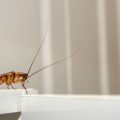


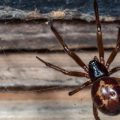
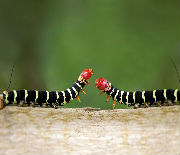
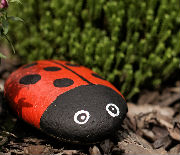
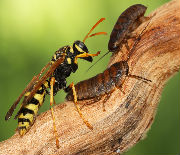
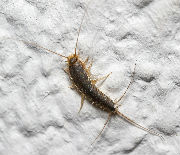
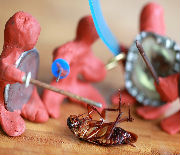
Leave a Reply